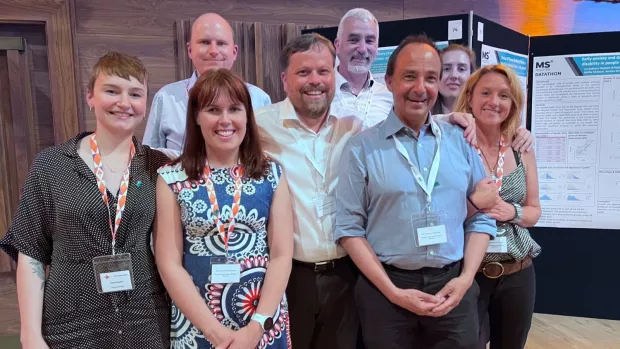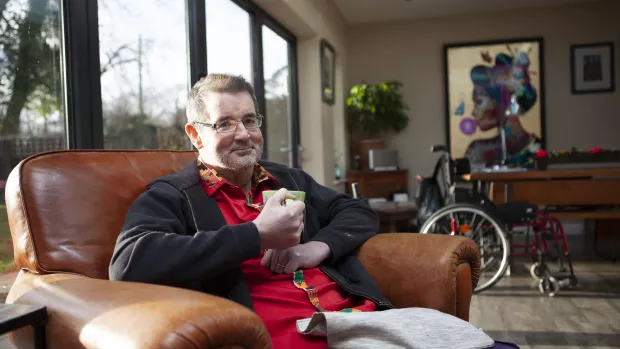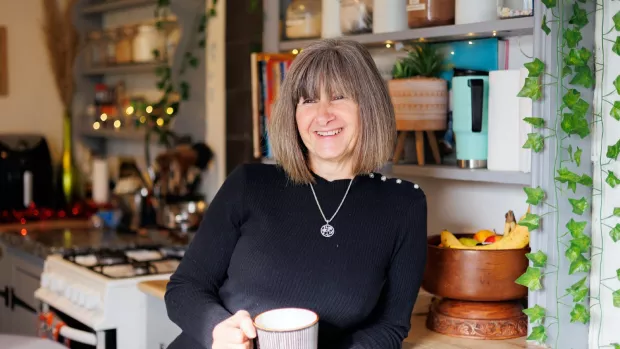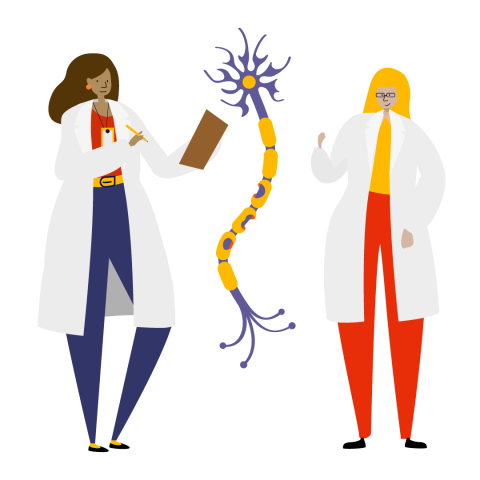
Stopping MS would open up my world
MS has significantly affected my life. There’s so many things I miss doing. I miss running. I miss going for long walks with my husband. I miss being able to paint how I used to.
My diagnosis was heartbreaking
I was diagnosed in 2016, in my mid-30s. I’d had a one-off episode of blurred vision 10 years before. But it cleared up and I’d forgotten about it.
My symptoms started again when I lost my balance and fell off the treadmill at the gym. Balance is still one of the main ways MS affects me – I’m always swaying. I was back and forth to the doctors for a long time and they didn’t seem able to help. By the time I got my diagnosis I was desperate to know what was wrong with me – but it was heartbreaking being told I had MS.
Support did kick in once I was diagnosed. I have a neurologist and MS nurse, and I take a disease modifying therapy (DMT). I’ve also found it really helpful to change my diet and take vitamin D.
Following MS research has helped me understand why vitamin D is important for everyone - whether you’ve got MS or not. I only found this out after I did my own research and found many sources explaining the benefits of Vitamin D.
How MS affects me
I can’t work anymore. Instead I volunteer regularly. There’s a lot of social aspects to that and it’s very satisfying. But I do miss work. I miss the office environment, being set targets and getting paid.
‘Mind fog’ means I’m not able to concentrate and my mind gets very fatigued. I read a page of a book and then get very tired, so I don’t read as much as I used to.
I used to love art - painting and things. But I don’t have the same control with my pen or the brush anymore. So I don’t do it as much. And I don’t find it as enjoyable as I used to because I’m not getting the results I was expecting.
Why I joined the UK MS register
After my diagnosis, I wanted to do all I could to understand MS. I was eager to join the UK MS Register because it was all about the research. I wish we could find out what causes it.
I think it’s very important to collect the information I fill in for the questionnaires, on things like lifestyle and medication. Sometimes it can be emotional filling them in because of the subject matter. But I find it interesting to look back and see how I felt two years ago. I feel privileged to assist something that can help researchers understand MS.
I would encourage anyone to join the UK MS Register. It’s there for everyone with MS. And without it the research won’t get done as quickly as we want it to be done.
My hopes for MS research
MS is so different for everyone, you don’t know what part of the brain is going to be affected. I’d love to know why it targets certain people, and mostly young women. What makes it more likely you’re going to get MS? There’s still so much that’s unknown.
I hope we can stop MS. And that one day there will be a cure so no one else has to go through this. It’s a horrible disease and affects people at such a young age. I want there to be more awareness of it, and more funding for research.
For me, stopping MS is the dream. It would mean my world opening up again.
Get support
Our MS Helpline gives emotional support to anyone affected by MS. Call 0808 800 8000 for free or email [email protected]. We’re here Monday to Friday, 9am to 7pm except bank holidays.



